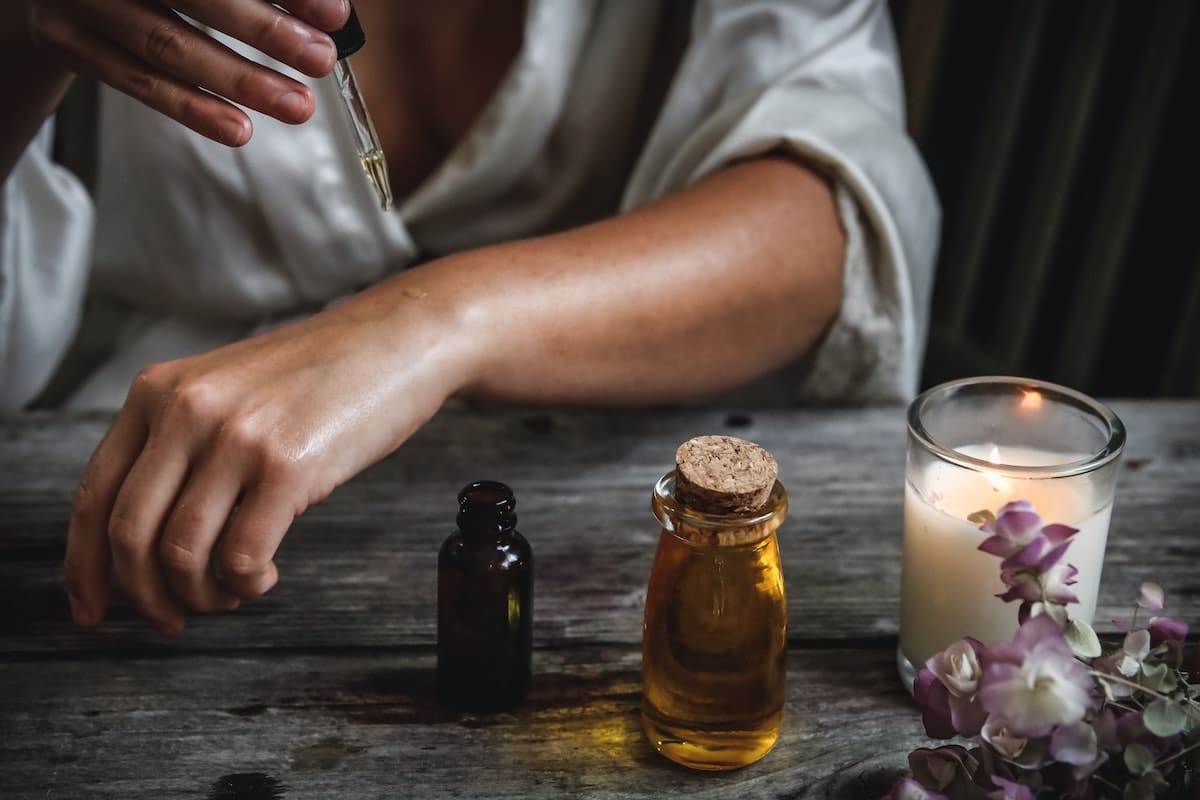


The skin is the largest organ of the human body, because their total weight accounts for about 13% to 15% of the body weight, and the area of the skin is about 1.5 to 2 square meters.
Skin makes an essential contribution to our life and health. It is a natural protective barrier of the body. The stratum corneum can prevent the loss of nutrients and moisture in the body, and prevent the invasion of various harmful substances. The skin lipid can buffer external mechanical shocks. In addition, pigment cells in the skin can produce melanin to absorb ultraviolet rays, protecting the body from the damage caused by sunlight.
The skin also can perspire, regulate body temperature, produce a sense of touch and early warning, and resists viruses. In order to maintain the health of the skin, we must do a good job in daily protection and ensure that we take in enough nutrients to support the skin function.
- Vitamin A
Vitamin A, also known as retinol, is key for cell growth. It seems to prevent sun damage by interrupting the process that breaks down collagen. It helps the oil glands around hair follicles to function, and it also helps cuts and scrapes heal.
Vitamin A has a strong antioxidant effect and can prevent free radicals from destroying collagen, thereby making the skin firmer and reducing the appearance of saggy skin and fine lines. Retinol, a major source of vitamin A, boosts collagen production.
When collagen is damaged and skin begins to wrinkle, retinoids signal the cells responsible for collagen production to make new collagen.
Vitamin A can stimulate fibroblasts in the deep layer of the skin, promoting tissue growth. There is a skin condition called keratosis pilaris, which usually appears as dry, raised bumps on the skin. This is a manifestation of vitamin A deficiency, and doctors recommend applying vitamin A cream (also called topical retinoids).
- Vitamin C
The lack of vitamin C leads to the failure of collagen production and the fragility of capillaries, which further leads to subcutaneous and submucosal hemorrhage, and finally leads to scurvy. Increasing the intake of vitamin C in the diet can improve the healing ability of the skin.
Vitamin C is also an antioxidant, which neutralizes free radicals and reduces inflammation before they can wreak havoc. For sunburn caused by ultraviolet light, vitamin C can play a very good preventive and repairing role. Vitamin C is one of the key ingredients in many antiaging skin care products due to its vital role in the body’s natural collagen synthesis. Consuming adequate vitamin C can also help repair and prevent dry skin.
- Vitamin D
Vitamin D is a fat-soluble vitamin that maintains skin barrier function, skin cell growth, and supports the skin’s immune system, the first line of defense against harmful pathogens.
Some studies have shown that low levels of vitamin D in the blood can lead to dry skin, eczema, and psoriasis. After supplementing vitamin D, these skin symptoms have been significantly improved.
- Vitamin E
Not surprisingly, vitamin E is also an antioxidant and fat-soluble vitamin. Its main function in the skin is to protect against sun damage. When vitamin E is applied to the skin, it absorbs the harmful UV rays, preventing the appearance of dark spots and wrinkles.
Sebum keeps skin hydrated, and vitamin E may help counteract sebum deficiency and treat skin inflammation, so it’s included in moisturizers. People with oily skin may have more vitamin E in their skin.
- Protein
Protein repair and build cells, including skin cells. Protein provides the skin with amino acids to produce collagen, elastin, and keratin in the skin, which form the skin barrier.
Collagen is the most abundant protein in the skin, accounting for 75% of the dry weight of the skin. There is a review of dermatological applications showing that oral collagen supplements can increase skin elasticity, hydration, and dermal collagen density.
- Omega-3 fatty acids
Omega-3 fatty acids are polyunsaturated fats that not only benefit the brain and nerves, but also have powerful anti-inflammatory and healing properties that promote healthy skin. Fatty sea fish are rich in omega-3 fatty acids, and fish oil supplements can also be used as a source of omega-3 fatty acids.
More than 10 trials evaluating fish oil for the treatment of psoriasis showed that taking fish oil with 1-14 grams EPA and 0-9 grams DHA daily for 6 weeks to 6 months improved symptoms of psoriasis, a chronic inflammatory skin disease.
- Zinc
Repairing cut skin doesn’t just rely on vitamin C, zinc also plays a role. The outer layers of the skin contain 5 times more zinc than the lower layers. Mineral (including zinc) levels in the periwound skin rise along with enzymes and proteins that protect against infection, help generate new cells and transport them near the wound to close the damaged skin.
Zinc was nearly as effective as tetracycline in relieving acne. In addition, zinc is an important component of vitamin A binding protein, which promotes the transportation of vitamin A in the body.
How to supplement nutrients that are beneficial to the skin?
Dietary source
-
- Vitamin A (700- 900 mcg per day). liver, cod liver oil, sea fish, cheese, butter, egg, clam, oyster, etc.
- Vitamin C (100- 1,000 mg per day). citrus (oranges, kiwi, lemon, grapefruit), bell peppers, strawberries, tomatoes, cruciferous vegetables, etc.
- Vitamin D (15 mcg per day). cod liver oil,salmon, herring, sardines, tuna fish, egg yolk, mushrooms, soy milk, cow milk, orange juice, etc.
- Vitamin E (15 mg per day). wheat germ oil, sunflower seeds, almonds, peanuts, pine nuts, avocado, salmon, brazil nuts, mango, kiwifruit, red bell pepper, etc.
- Collagen boost. beef bone broth, pork bone broth, skin-on chicken, sardines, organ meats, garlic, tropical fruits, berries, egg, fish skin, beans, etc.
- Omega-3 fatty acids (no more than 3 g per day). mackerel, salmon, cod liver oil, herring, oyster, sardines, anchovies, caviar,chia seeds, walnuts, soybeans, etc.
- Zinc (8- 11 mg per day): red meat, shellfish, chickpeas, lentils, beans, pumpkin, squash, and sesame seeds, nuts, dairy, etc.
Supplement source
Who needs nutrient supplements?
- Elderly.
- Pregnant women.
- Patients with indigestion, including celiac, ulcerative colitis, cystic fibrosis, and certain digestive organs are removed.
- People who do not eat a variety of foods every day.
Nutrient Supplements Tips:
- Find out which type of food you are most deficient everyday, and then check what nutrients the foods are rich in to determine what supplements you should buy.
- Take nutrient supplements in combination with diet and recommended daily allowance, and do not over consume.
- Since foods contain many different nutrients, as long as you eat every day, you will probably not have serious nutritional deficiencies. If you are eating a variety of foods, reduce your supplement intake or only take it on a day when you eat a single type of food.
- Buy supplements close to the manufacture date, as the nutrients decrease over time.
- Buy a multivitamin. Take recommended capsules daily with food.
- If you are deficient in only one vitamin, you can buy a single vitamin supplement.
- Choose a professional retailer. GNC (General Nutrition Centers) typically stock a wide range of vitamins, supplements, minerals, herbs, sports nutrition, diet, and energy products. GNC.com has a variety of products with transparent nutrition information so you can quickly buy the right supplements. Online shopping allows you to enjoy the latest deals and GNC digital coupons.
- NOTE: Upper Tolerable Limit (UL). The highest amount you can take without risk.
Vitamin A. 3,000 mcg/day
Vitamin C. 2,000 mg/day
Vitamin D. 100 mcg/day (4,000 IU)
Vitamin E. 1,500 IU/day (1,000 mg/day)
This applies only to vitamin E in supplements or fortified foods. There is no upper limit for vitamin E from natural sources.
Omega-3 fatty acids. no more than 3 grams per day
Zinc. 40 mg/day
The post Ultra Guide: What Nutrients Keep Skin Healthy? What Should We Eat? appeared first on UrbanMatter.

